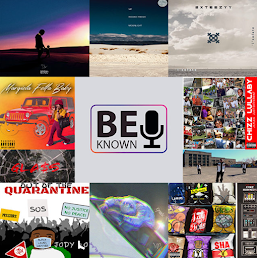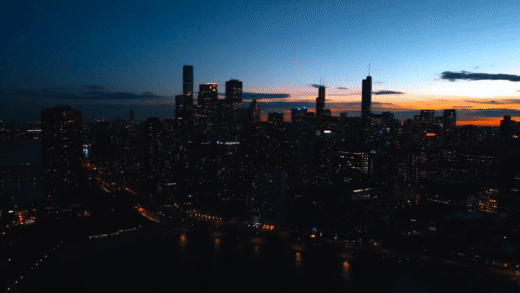by. Nate James (VICE)
VICE Sports contributor Tal Pinchevsky writes: “Before he was moving
cocaine by the ton across the United States. Before he was making as
much as $2 million on a good day. Before the Los Angeles Sheriff's
Department started a corrupt task force named after him. Before all of
that, "Freeway" Rick Ross was Ricky Donnell Ross, a small, wiry kid just
trying to get out of South Central. And it wasn't drug dealing that was
going to help him do that. It was tennis.”
Before he was moving cocaine by the ton across the United States.
Before he was making as much as $2 million on a good day. Before the Los
Angeles Sheriff's Department started a corrupt task force named after
him. Before all of that, "Freeway" Rick Ross was Ricky Donnell Ross, a
small, wiry kid just trying to get out of South Central.
And it wasn't drug dealing that was going to help him do that. It was
tennis. Even through his infamous career as one of the world's foremost
drug kingpins and then through his inevitable fall and subsequent
self-reclamation, tennis has always been there. It's been there since
the day he first picked up a racket.
"We were in the park one day playing roller derby and this guy named
Richard Williams offered us an opportunity to win a quarter by hitting
the balls into the box," Ross remembered. "It didn't start that day, but
it started a short time afterwards."
The Richard Williams that guided Ross and countless other
African-American kids through tennis is not Venus and Serena's dad. Yes,
that Richard Williams did get his daughters involved in tennis
after moving to South Central, but the Richard Williams who Ross met as a
child was an L.A. tennis pioneer who would change the lives of
countless neighborhood children.
Having moved to South Central with his mother when he was three, Ross
fully committed himself to tennis by the time he entered his teens. He
wasn't blessed with height or strength or reach, so he'd never play a
power game. But he did find his style, one defined by a refusal to give
up on any ball. Opponents might outpower him, but they would never
outwill him on the tennis court.
"I was a baseline guy. I liked the back end. I wasn't really strong," Ross said. "I was more consistent. I was really quick."
Having studied auto upholstery in trade school, Ross applied those
skills when he took on work at a local chop shop. It was there he first
learned about cocaine.
Almost overnight, Ross was slinging crack. That endeavor escalated
dramatically the day he met Oscar Danilo Blandon, a Nicaraguan expat and
large-scale drug distributor who was using part of his profits to fund
the Contra rebels in his home country. Through this partnership, Ross
gained access to an almost-unlimited supply of cocaine at a time when
the crack epidemic was about to overwhelm the country. He had been in
the perfect place at the perfect time.
But Ross's rise, which eventually involved wearing a bulletproof vest
and carrying a 9mm revolver at all times, was built on a certain set of
principles. Principles originally developed on the tennis court.
"Tennis helped me in the drug business, without question. I saw in
tennis when I practiced hard how my game improved. When I took to the
drug business, I took that same mentality," Ross said. "It's not over
until it's over. Even though it can be match point, you can go from
match point and turn the whole thing around."
Ross's exploits as one of the country's most powerful drug dealers
eclipsed any of the success he ever had in tennis. As the head of a
million-dollar-a-day empire, Ross's life had completely changed. For the
first time, the dreams formulated during daytrips to Beverly Hills were
being realized. He had more money than he'd ever be able to spend. Not
that he didn't try.
He took care of his mother, who he'd been reunited with after her
incarceration. He bought countless cars and properties, eventually
losing track of exactly how many houses he owned. He bought a house from
a liquor store owner for $250,000 cash. When the business owner
mentioned he relied on small denominations for his store, Ross paid him
in dollar bills.
Still, tennis remained on his mind. So much so that he sponsored some
of his old high school teammates who had gone pro, including Larry
Barnett. But one of Ross's proudest achievements as a multi-millionaire
was the youth tennis program he established in his old neighborhood.
Spearheaded by Ross's financial investment, the program kickstarted the
local tennis factory he had been a part of years earlier.
"He would bring us out to the tennis court and teach us right from
wrong. What to do and what not to do," said Le George Mauldin, Ross's
nephew and one of the top-ranked youth players during the program's
heyday.
Mentored by his uncle, Mauldin became one of the country's top-ranked
tennis players at age 10. At the same time, a young girl from the
neighborhood named Venus Williams was the top-ranked girl in the same
age group. It may have seemed unusual coming from the kingpin known as
Freeway, but the importance of education was the prevailing message to
these young tennis players. Almost every child he encountered was told
the story of how his college dreams had been dashed.
"That was the main reason why he told us to stay in school," said
Mauldin, who today coaches youth tennis in Los Angeles. "To this day,
that's what I tell my students. If you don't' know something, just say
you don't know it and the teacher will take his or her time to explain
it to you. Don't be too shy or nervous to ask for help."
It was a remarkable story during a dangerous time in South Central. It wouldn't last.
By the mid-1980s, Ross was being investigated by the DEA and law
enforcement groups across the country. The Los Angeles Sheriff's
Department was spending countless hours on the Freeway Ricky Task Force,
but Ross was proving to be a teflon don; no less slippery as a drug
lord than he was as a tennis player.
While the corruption that plagued the task force helped Ross remain a
free man, the heat bearing down on his operation was enough to make him
consider getting out of the game.
That was until September 28, 1988, when police in Carlsbad, New
Mexico seized nine kilos of cocaine from a bus traveling from Los
Angeles to Cincinnati, one of the main satellites in Ross's network,
where he was known as the "Six Million Dollar Man." That drug bust
ultimately led to the indictment of 10 individuals, including Ross. He
would eventually plead guilty to cocaine trafficking charges.
By then, 35 deputy sheriffs and six related individuals had been
prosecuted by the Los Angeles U.S. Attorney's Office in 11 trials over
corruption charges ranging from beating suspects to planting evidence.
Ross seized the opportunity to testify against the corrupt police force
that helped raze his empire. He spent three days on the stand describing
in great detail the intricacies of his drug operation. In exchange for
his testimony, Ross's sentence, originally 121 months, was reduced to 51
months.
Upon his release, Ross struggled with debt caused by his lavish
spending. Desperate for a solution, he was convinced by his old partner
Blandon to broker one final drug deal. On March 2, 1995, Ross was busted
by federal agents beside a Chevy Blazer packed with 100 kilos of
cocaine. Blandon, who had become a full-time paid informant for the U.S.
government, served Ross up to the DEA on a silver platter. Originally
sentenced to life in prison, his sentence was reduced to 20 years.
Without Ross's money and mentorship, the young tennis players he
sponsored in South Central Los Angeles were left in the lurch.
"I was in shock. I would go to school, to the tennis courts, and home
to do homework. Then it was basically just going to school and coming
home to do homework," Mauldin said. "I saw guys winning tournaments that
I was beating. That was definitely a big-time blow."
Aged 14 and with his tennis career suddenly at a crossroads,
Mauldin's story got the attention of staff at the famed Bollettieri
Tennis Academy, which invited him to train in Bradenton, Florida for two
weeks. But many of the players Mauldin grew up with didn't enjoy the
same fate.
"A couple of them took the wrong path. Once in a while I would call
them and we would talk about it. They just kind of wished they had tried
to stay with tennis," Mauldin said. "Some were gangbanging. Some
started a family. But they could have done a lot more if they had an
opportunity to stay on the tennis courts."
Meanwhile, Ross spent much of his time while incarcerated in the
library. It was in that prison library that he would overcome the
illiteracy that ended his youth tennis days, reading close to 300 books
during his time in prison. In between reading business and self-help
books, Ross learned that the Texas federal penitentiary he'd been
imprisoned in had a tennis court. From that moment on, Rick Ross began
rediscovering the baseline.
"I think that I may have peaked in prison, as far as tennis goes. I
probably became the best that I've ever been while I was in prison.
Tennis became my hustle," Ross said. "I was teaching guys how to play
and they would pay me $10 to $20 per hour. I would build these guys'
games up so well that they would challenge me. We started doing some of
the same drills I had learned in school."
Ross was a new man in a new world upon his release in 2009. He even
found that a former correctional officer named William Roberts had
co-opted his name, turned it into a hip-hop persona, and become a
successful rapper. Freeway Rick Ross sued the rapper known as Rick Ross
in 2010, the case was ultimately dismissed on First Amendment grounds.
But Ross's dreams of a new—and legit—empire
never relied on the lawsuit. He's pursuing a clothing line, a rap label,
an energy pill, and a film based on his life. And of course, there's
still tennis. Shortly after being released, he began sponsoring young
tennis players again, providing a few hundred dollars here and there to
help them attend tournaments. But his biggest tennis project remains in
its infancy.
"I have two babies right now who are swinging a racket. I have a son
who is four years old and I have a daughter who is two years old. I
think right now they are probably two of the most advanced people in
their age groups," Ross said. "They've been swinging the racket. They do
100 swings every couple of days. Nothing really hard. I believe that
muscles train themselves to function a certain way."
His greatest hope for his two youngest children, son Bricen and
daughter Jordan, is that they pursue tennis further than he ever did.
That likely means college, a dream for his children motivated by that
lost tennis scholarship to Long Beach.
More than 30 years later, he still dwells occasionally on how his
life may have changed had he played tennis in college. He'll keep
thinking about it, wondering how life may have been had Freeway Rick
Ross never existed.















.gif)

%20(1).png)
![YoungBoy Never Broke Again - Fuck Niggas [Official Music Audio]](https://blogger.googleusercontent.com/img/b/R29vZ2xl/AVvXsEg19b-sw_J51pVkhFnh5kNF9gVUXwJdxvvMOQK6X1xps0aQi6pdAax4NRquiQOan5nrwq5A2zpRFXWVOZFqdVwOD4DqWtDYAdE5rjiWwu7djzaIgpxEXJ6dfCX-s0IolqGMYia41yWPTyYGxjfyJQOyyfA68bzqwTjd-H4p1xBJTRYJgemxXo9Iu2UeJmA/w72-h72-p-k-no-nu/YoungBoy_Never_Broke_Again_Fuck_Niggas_Official_Music_Audio.gif)





.gif)

0 Comments